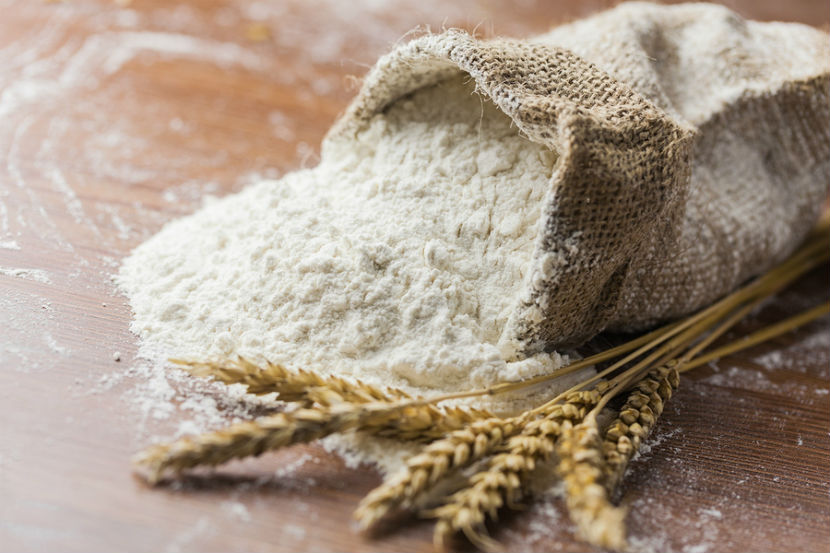While people are preoccupied with debates over the inquiry committee set up by the Interior Minister to review certain cases of naturalization, the Bahrain Flour Mills Company has quietly passed a significant decision to raise the prices of most of its flour products. The increases range from 35% to 100%, according to the product list available on the company’s website. Superficially, the company has maintained subsidized prices for traditional bakeries.
Founded in 1970, the company has increased the price of a 50-kilogram bag of flour No. 0 from 3.7 BHD to 5.2 BHD, and flour No. 2 from 3.1 BHD to 4.95 BHD. Prices for pizza flour, various types of confectionery flour, and bran flour for both human and animal consumption have also been raised. These decisions will undoubtedly raise the prices of daily bread, baked goods, and certain legumes, significantly impacting Bahraini households. Consequently, public anger is expected to rise in the coming days.
Citizens and commentators have expressed in local media that the increase in flour prices will lead to higher prices for many food items, including pastries, sweets, and livestock. Livestock breeders have reported significant harm due to a 100% increase in animal feed prices.
Globally, wheat prices range from $250 to $270 per ton, equivalent to about 94 BHD. However, Bahrain Flour Mills plans to sell wheat at over 125 BHD per ton under its new pricing scheme.
The chairman of Bahrain Flour Mills, Bassam Al Saie, offered somewhat unusual justifications for the significant price hikes, citing a recent expansion project completed at the end of March. He claimed the increased operating costs post-expansion directly impact the company’s expenses, necessitating higher prices to avoid financial difficulties. This justification seems peculiar, as it essentially passes the costs of the new expansion onto the citizens indefinitely.
Critics argue that the government appears to be steadily reducing subsidies on essential food and services, expecting citizens to comply regardless of the circumstances. Al Saie assured that subsidies for traditional bakeries and government-regulated products would remain unchanged, with price increases only affecting non-regulated, yet still subsidized, products.
However, former MP Mohammed Al-Ma’arifi, who previously chaired a parliamentary investigation committee on food security, highlighted that the decision would impact the prices of around 30 food products, including local meat, poultry, dairy, and cheese.
Additionally, the new pricing policy is likely to create a black market for flour and its derivatives. Economic analyst Mohammed Abdulwahab Nas pointed out the need for increased government oversight, predicting a black market for subsidized flour sold to restaurants.
higher flour prices would increase food prices
Many citizens have voiced their opposition to the price hikes on social media, arguing that tampering with bread prices contradicts the government’s professed priority of improving the living standards of Bahrainis. Before considering price increases, the government should focus on protecting low-income households, increasing assistance, and raising salaries, especially as many Bahraini families face economic decline and reduced purchasing power.
Interestingly, the government’s financial support for flour is minimal. Even during peak global flour prices, the government only paid Bahrain Flour Mills 7 million BHD over nine months, a relatively small amount given Bahrain’s financial capabilities.
A restaurant industry businessman emphasized that higher flour prices would increase food prices in restaurants, ultimately affecting customers (both citizens and residents) who bear the costs.
Ironically, the decisions by Bahrain Flour Mills followed the appointment of two Egyptian experts to its board, coinciding with the Egyptian government’s decision to increase all flour products and bread prices in Egypt. This similar move in Bahrain shortly after the experts’ appointment suggests a premeditated agenda.
Despite receiving extensive government support and monopolizing the market, Bahrain Flour Mills should not prioritize profit maximization. The company reported profits of 2.5 million BHD last year, making it far from a loss-making entity. Profit corrections should not burden citizens, especially when compared to Kuwait Flour Mills, which recorded substantial profits exceeding 76 million Kuwaiti Dinars while providing high-quality, subsidized bread and baked goods at affordable prices.
When will the Bahraini government learn to avoid jeopardizing citizens’ basic needs and livelihoods?
source: lualuatv

